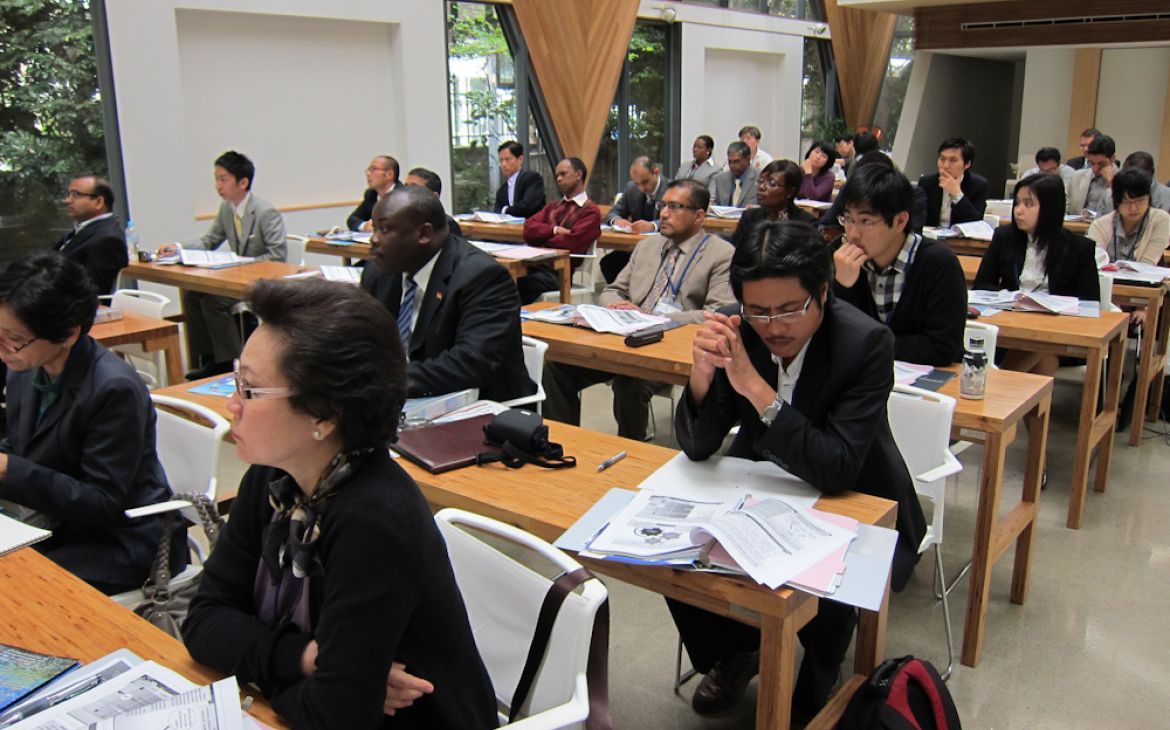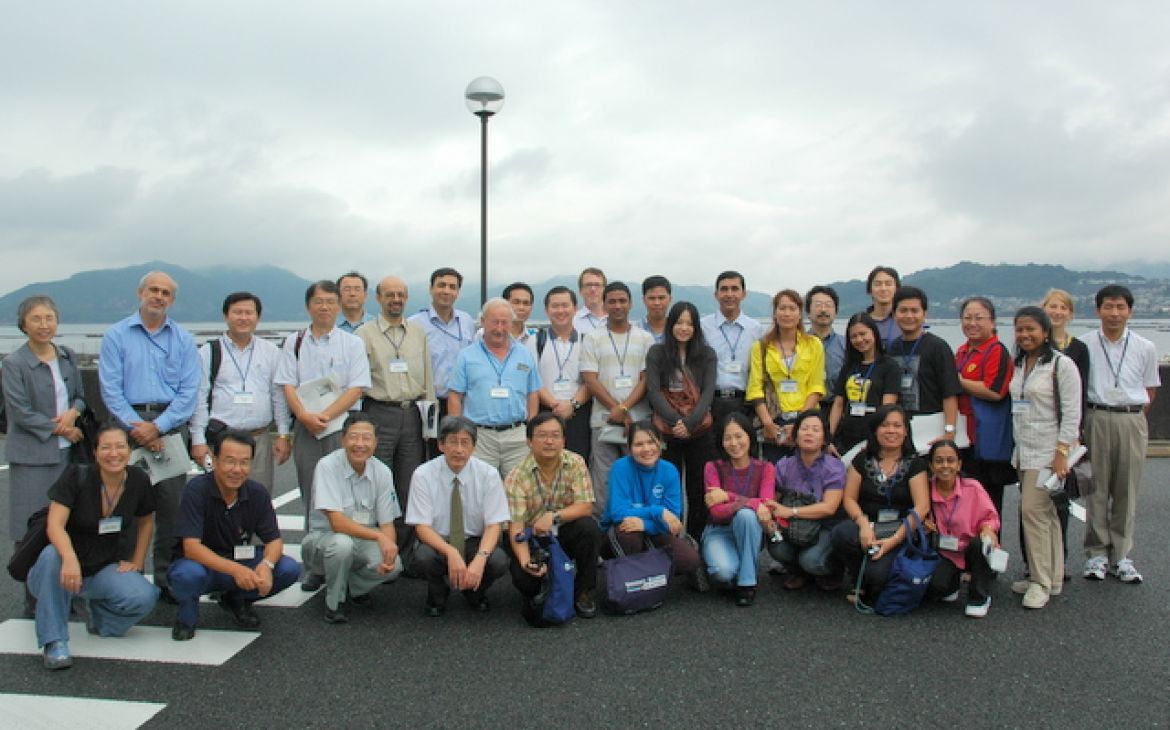Seas, coasts, and the ocean are part of the human security complex. Myriad factors including social, political, environmental, and economic aspects of human security depend upon the sustainable and comprehensive governance and management of these areas.
Inaugurated in 2002-2003, the UNITAR Hiroshima Sea and Human Security Training Programme examines, from a comprehensive point of view, the concept of human security as it pertains to seas and the ocean. The training programme aims to facilitate peer exchange and knowledge development among key policy makers working in the field of marine and ocean affairs.
Learning Objectives
Each training programme has its own specific theme focus. Generally, after completing a training programme participants will be able to:
- Identify key challenges in specific fields
- Describe inter-relations between subject areas
- Explore responses and lessons learned from case studies
- Outline policy development and implementation strategies
- Design feasible action plans for policy implementation
- Construct targets in order to tackle identified problems
- Develop strategies taking into account the interrelations between subject areas
- Explain the necessity of a comprehensive approach to Ocean Security
Methodology
The training programme is based on a blended-learning participatory approach and includes:
Interactive Lectures and Group Exercises
Interactive lectures are facilitated by key Resource Persons who examine the themes of the Workshop from a broad theoretical perspective down to case studies examining real world implementation. These presentations are augmented by small group exercises and frequent discussions from the floor, which serve to contextualise the issues being examined.
After-Action Reviews
Representing a key component of the Workshop, after-action reviews takes place within groups at the start of each morning, discussing the main issues raised in the previous presentations, as well as the specific frames of reference as applied to these by participants.
Study Tours
Underscoring the theoretical introductions and analysis presented, study tours form an integral part of the training methodologies utilised by UNITAR. Participants are able to relate to what has been seen and discussed in the training programme with actual examples of policy development and implementation.
Training the Trainer
A focus is made throughout the training sessions to relate the learning being facilitated to the realities on the ground. In addition, each participant is empowered to recreate the training upon their return to their organisation in order to achieve a self-propagating legacy of skills development.
Project Completion Reports
6 - 7 December, 2012; Tianjin, China
The UNITAR Hiroshima Office co-sponsored the Second Asia Pacific Economic Cooperation (APEC) Blue Economy Forum.
Organised by the State Oceanic Administration of China, the Forum was co-sponsored also by:
- Ministry of Marine Affairs and Fisheries, Indonesia;
- Global Ocean Forum (GOF);
- Partnerships in Environmental Management for the Seas of East Asia (PEMSEA);
- Conservation International Foundation (CI);
- International Ocean Institute (IOI)
The theme of the session was Mobilizing to Address the Rio+20 Challenge of Achieving Blue Economy in the Context of Sustainable Development: APEC Vision on Blue Economy for Post-Rio+20 Period. UNITAR presented upon the outcomes of the Sea and Human Series to date, and how these serve to strengthen the foundation towards a Blue Economy.
18–21 October 2011; Tokyo, Japan - Tsunami and the Natural Environment: Lessons Learned for Effective Planning
6–9 September 2010; Tokyo, Japan - Training Session on Sea and Human Security: "Governance Towards a Comprehensive Security for Seas and the Ocean"
27 September-2 October 2009; Hiroshima, Japan - Training Session on Sea and Human Security: "Governance Toward a Comprehensive Security for Seas and the Ocean: The Hiroshima Initiative"
28 September-3 October 2008; Hiroshima, Japan – Training Session on Sea and Human Security: “Towards a comprehensive security for seas and oceans: The Hiroshima Initiative”
14-19 October 2007; Hiroshima, Japan - Training Session on Sea and Human Security: “Towards a comprehensive security for seas and oceans: The Hiroshima Initiative”
1-6 October 2006; Hiroshima, Japan - Training Session on Marine Food Security
26-30 September 2005; Hiroshima, Japan - Training Session on Marine Food Security
5-9 July 2004; Hiroshima, Japan - Training Session on Sea and Human Security




